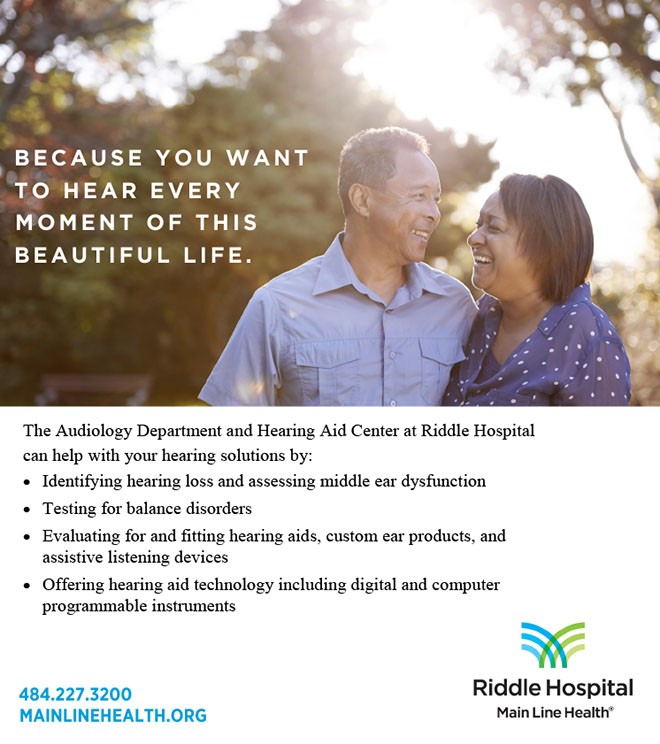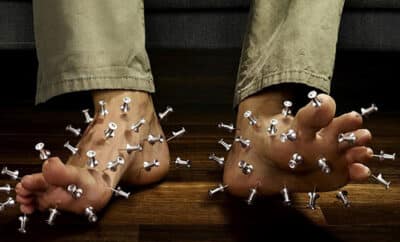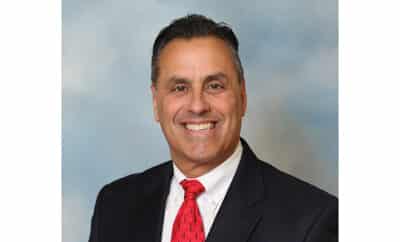A Recipe For Successful Hearing Aid Use
By Jessica M. Bell, Au.D.
I am an audiologist who regularly identifies and treats hearing loss. It is clear through conversations with patients that hearing aids and their intended purpose are mystifying to most. The most common questions are: Do I have a hearing loss? Is it significant enough to require hearing aids? What style of hearing aid is best for me? What manufacturer do you recommend? The most critical question, however, is: How do you know my hearing aids will be effective?
Simply put, hearing aids are exactly what they say they are – they are instruments that aid in improving hearing. There are several steps to ensure you find the right hearing aid to fit your needs.
First, the hearing test; This comprehensive audiological evaluation needs to be performed in order to determine the degree of hearing loss and to evaluate whether or not a patient may be a candidate for hearing aids. Second, a listening-needs assessment and hearing aid demonstration should be performed in order for the audiologist to best understand the listening needs of their patient. Third, the selected instruments need to be verified through objective measurements and validated through a subjective report.
Comprehensive Audiological Evaluation and Listening Needs Assessment
A comprehensive audiological evaluation, performed by a licensed audiologist, includes tests that rule out middle ear disorder, determines thresholds for pure tone sounds (i.e. determines how loud a sound needs to be before it is just barely detected) and evaluates word understanding ability when speech is presented at a comfortable volume, per ear. Information obtained during the testing allows the audiologist to have an educated conversation with the patient about the integrity of their auditory system.
Following the audiological evaluation, a listening needs assessment is completed to understand the patient’s daily listening lifestyle. The patient provides details about the different types of listening situations they frequently encounter and in what environments they are experiencing most of their hearing difficulties. This assessment allows the audiologist to select hearing instruments for the patient to listen through at estimated prescriptive levels. Once the patient uses the instruments in the office, the audiologist and patient carefully select the most appropriate hearing instruments based on sound quality of the devices and features that meet their listening needs.
Objective Hearing Aid Verification
The audiologist initially programs the hearing aids to produce the estimated needed amplified sound an individual needs using prescriptive values. These initial settings are based on degree and type of hearing loss, experience with hearing aids, age and other factors. The precision of the “fitting” is then measured and modified using an objective test called a Real Ear Measurement (REM) which determines how much sound is actually hitting the eardrum for different input levels of speech and tones.
This information provides verification of whether the hearing aid is capable of performing to the prescriptive formula and predicts audibility for soft, average and loud conversational speech. A REM also confirms that even loud sounds will be limited to safe levels. Only then can we know that optimal hearing for speech is being achieved in each ear.
Subjective Hearing Aid Validation
While objective verification evaluates the hearing aid’s capability of reaching the prescriptive value, subjective validation specifically assesses the benefit experienced by the patient. Are the hearing aids improving the patient’s communicative functioning and overall quality of life? The patient’s subjective report provides information about their social or emotional well-being using the hearing aids in specific listening environments.
The best recipe for success is to accommodate patient’s individual needs through both objective verification and subjective validation of the hearing instruments.
The Riddle Experience
The audiologists at Riddle Hospital, part of Main Line Health, share the same goals that you do – to help you hear your best to live life fully.
Catherine M. Marino, Au.D., Doctor of Audiology/Director
Jessica M. Bell, Au.D., Doctor of Audiology
Denise E. Stewart, M.S., Clinical Audiologist
Lisa C. Mackenzie, M.S., Clinical Audiologist
For an appointment with a Riddle Hospital audiologist, call 484.227.3200 or visit






